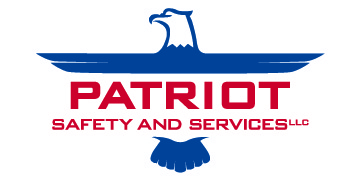Understanding the Difference—and the Importance
When it comes to workforce health and compliance, physical exams are essential tools for confirming employee fitness and reducing liability. In federally regulated industries, employers are often required to administer specific exams based on whether an employee is performing duties covered by the Department of Transportation (DOT). This distinction gives rise to two types of physical exams: DOT non-DOT physicals.
For companies that employ both DOT-regulated and non-regulated personnel, managing both types of physicals correctly is critical. Employers must ensure that employees in safety-sensitive roles receive physicals that meet federal standards, while still maintaining health and safety protocols for non-DOT roles. The ability to administer and document both DOT non-DOT physicals is not just an operational advantage—it’s a compliance necessity.
What Are DOT Non-DOT Physicals?
DOT non-DOT physicals refer to two categories of medical exams: DOT physicals, which are required by federal law for safety-sensitive transportation workers, and non-DOT physicals, which are generally employer-mandated and tailored to the specific needs of a role or industry.
A DOT physical is conducted according to Federal Motor Carrier Safety Administration (FMCSA) standards and must be performed by a certified medical examiner listed on the National Registry. These physicals are mandatory for commercial motor vehicle (CMV) drivers and evaluate vision, hearing, blood pressure, cardiovascular health, musculoskeletal function, and other factors that affect a person’s ability to safely operate a vehicle.
Non-DOT physicals, on the other hand, are not federally regulated but are often required by employers to assess the general fitness of workers in physically demanding jobs or roles where medical fitness is a safety consideration. Examples include warehouse personnel, construction workers, and utility technicians.
Together, DOT non-DOT physicals allow employers to ensure that all employees—regardless of regulatory status—are healthy, capable, and ready for duty.
Why Employers Need Both DOT Non-DOT Physicals
Companies that manage diverse teams across transportation, construction, logistics, or infrastructure often have employees who fall into both categories. Some roles may require DOT physicals due to FMCSA or PHMSA oversight, while others may need only a standard pre-employment or fitness-for-duty evaluation.
By offering both DOT non-DOT physicals, employers create a consistent screening process that aligns with both regulatory and operational requirements. This dual approach reduces confusion, minimizes compliance gaps, and ensures that every worker is medically cleared for the tasks they’re expected to perform.
For example, a trucking company may require DOT physicals for its drivers but opt for non-DOT physicals for warehouse staff and dispatchers who handle physical labor but aren’t subject to DOT regulation. Without proper differentiation, companies risk applying the wrong standards—or none at all—resulting in legal exposure and inconsistent workforce health assessments.
Compliance Considerations for DOT Non-DOT Physicals
Employers must understand the regulatory obligations that accompany DOT non-DOT physicals. DOT physicals must follow a specific protocol, include vision and hearing assessments, and result in a Medical Examiner’s Certificate (commonly known as a DOT card). The exam must be conducted at least every two years, although more frequent exams may be required based on medical conditions like hypertension or diabetes.
All DOT physicals must be documented and made available during compliance audits. Employers should track expiration dates, renewals, and any disqualifications that arise from the exam process. Missing or expired DOT cards can lead to disqualification from safety-sensitive duties and potential DOT violations.
For non-DOT physicals, while there is more flexibility, employers must still comply with state and federal labor laws, privacy regulations under the ADA, and OSHA guidelines for medically evaluating workers who perform high-risk tasks. Accurate documentation and consistent administration of non-DOT physicals are essential for avoiding claims of discrimination or improper medical evaluation practices.
Having a program in place for both DOT non-DOT physicals allows employers to maintain control over workforce readiness, support legal defensibility, and proactively identify medical issues that could lead to workplace injuries or absenteeism.
The Operational Benefits of Managing DOT Non-DOT Physicals
Beyond compliance, there are clear operational benefits to offering and managing both DOT non-DOT physicals through a centralized provider. These include:
- Improved onboarding speed by reducing delays in scheduling and documentation
- Reduced downtime by ensuring employees are medically cleared before duty
- Fewer workers’ compensation claims related to pre-existing medical issues
- Better documentation for insurance and regulatory audits
- Enhanced employee morale by showing commitment to health and safety
When a provider like Patriot Safety and Services handles both DOT non-DOT physicals, employers enjoy streamlined scheduling, consistent recordkeeping, and a single point of contact for all occupational health needs. This reduces complexity and helps maintain continuity across teams.
How Patriot Safety and Services Supports DOT Non-DOT Physicals
Patriot Safety and Services provides comprehensive support for DOT non-DOT physicals, ensuring that every exam is conducted according to the latest standards and best practices. Our services are built for employers who need speed, consistency, and compliance across diverse job roles.
For DOT physicals, we work with FMCSA-certified medical examiners who conduct exams that meet all federal requirements. We help employers schedule appointments, track expiration dates, and manage compliance documentation. All exam results are securely stored and easily accessible when needed for audits or internal reviews.
For non-DOT physicals, we offer customizable evaluations tailored to the demands of your specific job roles. These may include pre-employment physicals, fitness-for-duty assessments, and return-to-work evaluations. Each exam is conducted with your safety policies and operational requirements in mind, ensuring that every employee is ready to perform at their best.
By centralizing both DOT non-DOT physicals with Patriot, employers eliminate the guesswork and gain peace of mind knowing that their workforce has been evaluated consistently and accurately.
Supporting Safety, Performance, and Long-Term Health
Workplace physicals aren’t just about compliance—they’re about preventing injuries, promoting health, and reducing the hidden costs of unfit employees. When companies implement a structured program for DOT non-DOT physicals, they can identify health issues before they become safety hazards, minimize leave time related to medical conditions, and build a culture of accountability and wellness.
Employees benefit from the process as well. Workers who know their employer values health screening are more likely to take their role seriously and to view safety as a shared responsibility. Clear expectations around physical readiness also reduce misunderstandings and improve communication between teams and supervisors.
Over time, a workforce built on the foundation of regular DOT non-DOT physicals is more resilient, more reliable, and better aligned with the demands of modern industry.
Why DOT Non-DOT Physicals Should Be a Standard Part of Your Compliance Plan
Employers who take a proactive approach to medical screening set themselves up for success. In industries where safety, regulation, and performance intersect, there’s no room for guesswork when it comes to physical readiness. Incorporating both DOT non-DOT physicals into your hiring and employee health protocols ensures that you are meeting all legal requirements while also protecting your team and your bottom line.
With the right partner, this process becomes simple, scalable, and fully integrated into your broader compliance strategy. Patriot Safety and Services offers end-to-end support for employers looking to improve safety, streamline hiring, and reduce liability through accurate, compliant physical evaluations.





